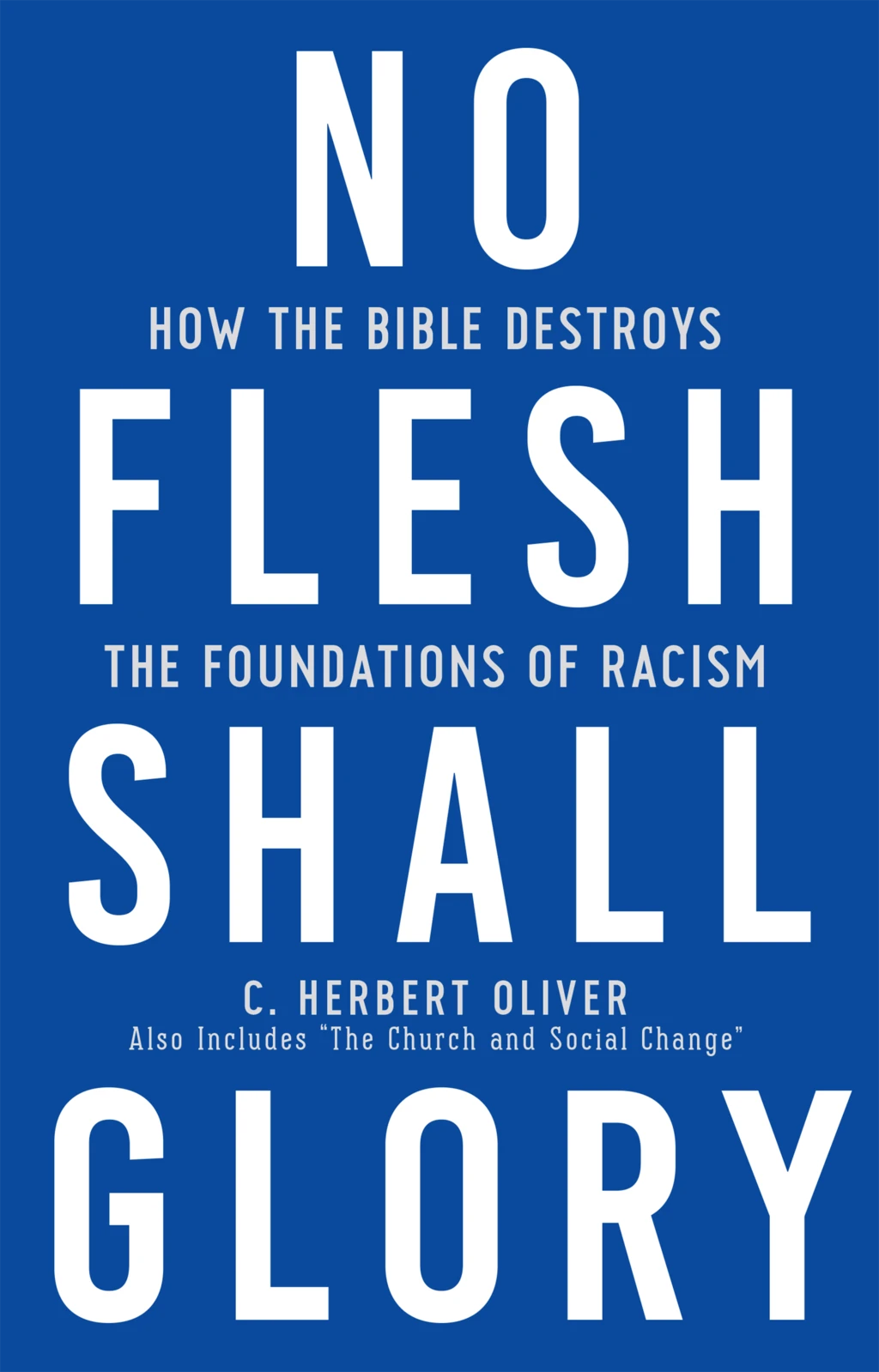
C. Herbert Oliver
Reviewed by: Bryan Selby
No Flesh Shall Glory: How the Bible Destroys the Foundations of Racism, by C. Herbert Oliver. P&R, 2021. Paperback, 144 pages, $11.25. Reviewed by OP member Bryan Selby.
Ever since 2012, when Trayvon Martin was shot and killed, there has been an increase in conversation concerning America’s long history of racism, racial segregation, and racial injustice. New movements have begun, books have been written, and theories have been developed in order to bring awareness to the reality of racism in America and even to shape our understanding of it and our response to it. But in my estimation, what is often lacking in the conversation is clear thinking about what the Bible says about race and racism. The reprint of then-OP minister Rev. C. Herbert Oliver’s classic study from 1959, No Flesh Shall Glory, provides that. As indicated by the subtitle of the work, Oliver’s aim is to expose the reader to a biblical understanding of race and to how such an understanding undermines the very foundation of racism.
The book begins in chapter 1 where any book on human origins should, the creation of man, male and female, in the image of God (Gen. 1:27). It is this foundational truth—that God created the root of all mankind, Adam and Eve, after his own image “with the inherent capacity to procreate endless varieties” of the one human race—that destabilizes the notion of racial solidarity (18). Racial solidarity is that popular notion that people can be grouped together and separated from others based on a few physical characteristics. Oliver argues that the Christian must recognize the differences and varieties among people, but such differences should never sever the unity of the one human race.
Chapters 2–4 unfold the painful historical reality that many Western Christians often turned to the Bible to confirm their prejudices and justify the enslavement of blacks by invoking the curse of Noah on Ham’s son, Canaan. Chapter 2 takes up the task of exploring what the Bible says about color and refuting the common association of black skin with a curse. Chapters 3–4 examine a handful of Old Testament commentaries that erroneously extend the curse of Canaan to all the descendants of Ham and some that go so far as to explicitly connect Canaan’s curse with the enslavement of Africans. With these commentaries as the backdrop, Oliver, through close attention to the genealogies of Noah’s three sons recorded in Scripture and other biblical texts, concludes that the curse of Canaan was fulfilled in the subjection of the Canaanites to Israel, the progeny of Shem.
Having established that the Bible provides no basis for racial divisions or racial superiority, Oliver in chapters 5–7 tackles the ideas of segregation, social association, and arguments against interracial marriages and concludes that “Christian ethics cannot support segregationist ideas, for such ideas have no place whatsoever in a truly Christian view of life” (68). And lastly, this reprint includes a short essay by Oliver entitled “The Church and Social Change” that underlines the fact that the teachings of the church always have societal implications that often oppose the opinions of the time. It was true for the apostles in a Greco-Roman society; it was true of the Reformers in a feudalistic society; and it is most certainly true of Christians in a segregated one.
Oliver’s interlocutors and arguments might seem to be a bit out of date to the modern reader, but his method of sound exegesis and its application to issues of race and racism aren’t. This book will certainly challenge you to think more biblically about matters of race and racism, but Oliver’s aim is much higher. Racist ideology from whites, blacks, and everyone in between is a form of glorying in the flesh, and such glory is due to our triune God alone.
November 09, 2025
November 02, 2025
October 26, 2025
October 19, 2025
October 05, 2025
Raising Sexually Faithful Kids and
Parenting Boys and Girls in a Gender-Confused World
September 28, 2025
Calvin’s Ecclesiology: A Study in the History of Doctrine
September 21, 2025
© 2025 The Orthodox Presbyterian Church